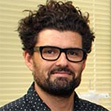Our Group organises 3000+ Global Conferenceseries Events every year across USA, Europe & Asia with support from 1000 more scientific Societies and Publishes 700+ Open Access Journals which contains over 50000 eminent personalities, reputed scientists as editorial board members.
Open Access Journals gaining more Readers and Citations
700 Journals and 15,000,000 Readers Each Journal is getting 25,000+ Readers
Google Scholar citation report
Citations : 4859
Journal of Addiction Research & Therapy received 4859 citations as per Google Scholar report
Journal of Addiction Research & Therapy peer review process verified at publons
Indexed In
- CAS Source Index (CASSI)
- Index Copernicus
- Google Scholar
- Sherpa Romeo
- Open J Gate
- Genamics JournalSeek
- Academic Keys
- JournalTOCs
- SafetyLit
- China National Knowledge Infrastructure (CNKI)
- Electronic Journals Library
- RefSeek
- Hamdard University
- EBSCO A-Z
- OCLC- WorldCat
- SWB online catalog
- Virtual Library of Biology (vifabio)
- Publons
- Geneva Foundation for Medical Education and Research
- Euro Pub
- ICMJE
Useful Links
Recommended Journals
Related Subjects
Share This Page
Christopher V Dayas

Senior Lecturer School of Biomedical Sciences and Pharmacy (Anatomy)
Biography
I completed my PhD at the University of Queensland, Brisbane, Australia in 2000. The focus of this work was to identify parts of the brain that controlled neuroendocrine responses to different forms of stress. This work showed that different categories of stress - psychological or physiological (e.g. infection) - elicit distinct cellular activity "footprints" within the amygdala and sub-populations of catecholamine cells within the brainstem. This finding was because the consensus at the time was that these brain regions responded homogenously to stress irrespective of the 'category' or nature of the stimulus. At the end of my PhD I was awarded a CJ Martin fellowship from the NHMRC that allowed me to travel to the United States to undertake post-doctoral training at The Scripps Research Institute in California, San Diego. My post-doctoral research at The Scripps Research Institute contributed to the understanding of the neural pathways that control reinstatement of alcohol relapse. In articles published in the journal Biological Psychiatry and Journal of Neuroscience, I showed that the pattern of neural activity elicited by stimuli conditioned to predict the availability of alcohol, a factor linked to increased relapse risk in humans, is similar to the patterns produced by stimuli paired with the availability of other commonly abused drugs such as cocaine or nicotine. Additionally, we demonstrated how existing neuropharmacological treatments for alcoholism such as naltrexone, or newer agents that show promise in the treatment of addiction such as agonists for group II/III metabotropic glutamate (mGlu2/3) receptors, also modulate these patterns. We also showed that mGlu2/3 receptor agonists, which appear to have an anxiolytic profile, are effective in suppressing reinstatement (or relapse) elicited by stress - an important trigger for relapse in humans. At Scripps I also demonstrated that hypothalamic peptide systems, better known for their role in feeding behaviour, may be important neurotransmitters in the brain circuitry that trigger alcohol seeking behaviour. After returning to Australia, I established my own laboratory in the Discipline of Anatomy, School of Biomedical Sciences and Pharmacy, University of Newcastle to investigate the role of these hypothalamic peptides in driving drug-seeking and relapse-like behaviour. I received an NHMRC grant in to commence this work. My laboratory therefore focuses on the brain pathways that are involved in addiction and stress.
Research Interest
Neuroscience , Medicine.
Relapse to drug taking is considered the most significant obstacle to the successful treatment of addiction. Although much progress has been made in identifying individual brain regions that elicit drug-seeking behaviour and subsequently relapse, there are presently very few effectively pharmaceutical or indeed behavioural therapy strategies available to treat this disease. My research interests concern the following key issues: 1.Understanding the neuroanatomical and pharmacological interactions between key components of brain circuitry thought to be responsible for provoking drug relapse. 2.Determining the role of the neuropeptides (orexin/hypocretin and CART) recently found to be powerful modulators of drug-seeking and relapse. 3.Elucidating the cellular and molecular neuroadaptations that promotes long-term relapse vulnerability. 4.Determining the neurobiological basis for why some individuals become addicted and show greater vulnerability to drug relapse than others.
Global Speakers in the subject
Global Experts in the subject
Relevant Topics
Peer Reviewed Journals
Make the best use of Scientific Research and information from our 700 + peer reviewed, Open Access Journals

 Spanish
Spanish  Chinese
Chinese  Russian
Russian  German
German  French
French  Japanese
Japanese  Portuguese
Portuguese  Hindi
Hindi 
